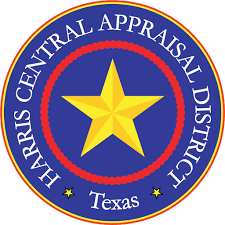 The Houston [1st] Court of Appeals has upheld a trial court judgment that neither the property owner or the appraisal district met its burden of proof in an appeal pursuant to Chapter 42, Tax Code.
The Houston [1st] Court of Appeals has upheld a trial court judgment that neither the property owner or the appraisal district met its burden of proof in an appeal pursuant to Chapter 42, Tax Code.
Providence Town Square Houston, LTD. v. Harris County Appraisal District (No. 01-20-00835-CV; issued December 29, 2022) arose from a dispute over the appraised value of Providence’s senior living apartment complex for tax year 2018. In 2017, Providence sought de novo judicial review of an appraisal review board order affirming HCAD’s appraisal. Providence and HCAD subsequently settled the case, and an agreed judgment set the value at $5 million. The following year HCAD raised the value to a little more than $7 million. Providence protested and the ARB reduced the value to about $6.8 million. Providence once again sought judicial review, alleging that the appraised value was excessive. It further invoked § 23.01(e), Tax Code, which provides that if the value is lowered in a tax year pursuant to an ARB protest or judicial appeal, the chief appraiser may not increase the value in the following year unless the increase is reasonably supported by clear and convincing evidence. (In 2019 the Legislature changed the burden from “substantial evidence” to “clear and convincing. This case was decided under the old statute.) HCAD argued that 23.01(e) applied only to an ARB protest under Chapter 41, not judicial review. The trial court agreed but found that neither party carried their burden of proof. It rendered a take-nothing judgment for both sides, leaving the ARB value intact.
On appeal, Providence pushed the § 23.01(e) argument in an effort to show that the trial court erred in allowing the ARB value to stand. According to Providence, the chief appraiser’s “substantial evidence” burden for increasing the prior year’s value carries over from the ARB to district court. Consequently, the court should have reviewed whether the chief appraiser carried its burden at the ARB and, if the chief appraiser did not do so, enter a judgment for the 2017 value of $5 million. HCAD responded that § 23.01(e) applies only to the chief appraiser’s evidence at the ARB. Judicial review, however, is on de novo basis in which the trial court must decide the value in an independent proceeding with no reference to the ARB.
The court of appeals sided with HCAD. Noting that neither § 23.01(e) nor any other Tax Code section states that § 23.01(e) applies to either or both an ARB protest or judicial review, the court determined that the plain language of § 23.01(e) refers only to the chief appraiser’s value under a Chapter 41 protest at the ARB. Chapter 42, on the other hand, involves review of the ARB’s order, not the chief appraiser’s value (though they could be the same). Moreover, the chief appraiser is not even a party to a Chapter 42 appeal, and in a de novo trial the appraisal district can seek to prove up whatever value it wants regardless of what the chief appraiser did below. There are other Property Tax Code provisions that assign a burden of proof to the chief appraiser, but in an appeal to district court, the same rules apply as in any other civil litigation. In civil litigation, the party seeking relief bears the burden of proof. Ergo, Providence has the burden of proof at trial, not the appraisal district.
The court of appeals further distinguished trial de novo from two other standards of review: substantial evidence and substantial de novo. The distinction between trial de novo and the others rests primarily on the lack of an administrative record. ARB hearings are not administrative hearings like SOAH hearings are (even though certain large taxpayers can seek an administrative hearing in lieu of a Chapter 42 appeal under a substantial evidence standard of review). Rules of evidence and procedure are not mandatory and trial courts would have little to go on if they had to review ARB decisions on procedural grounds. The court of appeals acknowledged that the Legislature could make § 23.01(e) applicable to judicial review. But even if it did, we wonder whether it would make any difference without a concomitant change in the way in which the underlying ARB hearing is conducted. It seems doubtful to us that an ARB will have the time, experience, or resources necessary to apply the same procedural and evidentiary rules as judges do. That’s why the trial de novo standard of review is there in the first place.
We will see if Providence pursues the issue at SCOTX. As we read the court of appeals opinion, however, persuading SCOTX to wade into the issue might be an uphill battle. When in doubt, let the Legislature decide.











